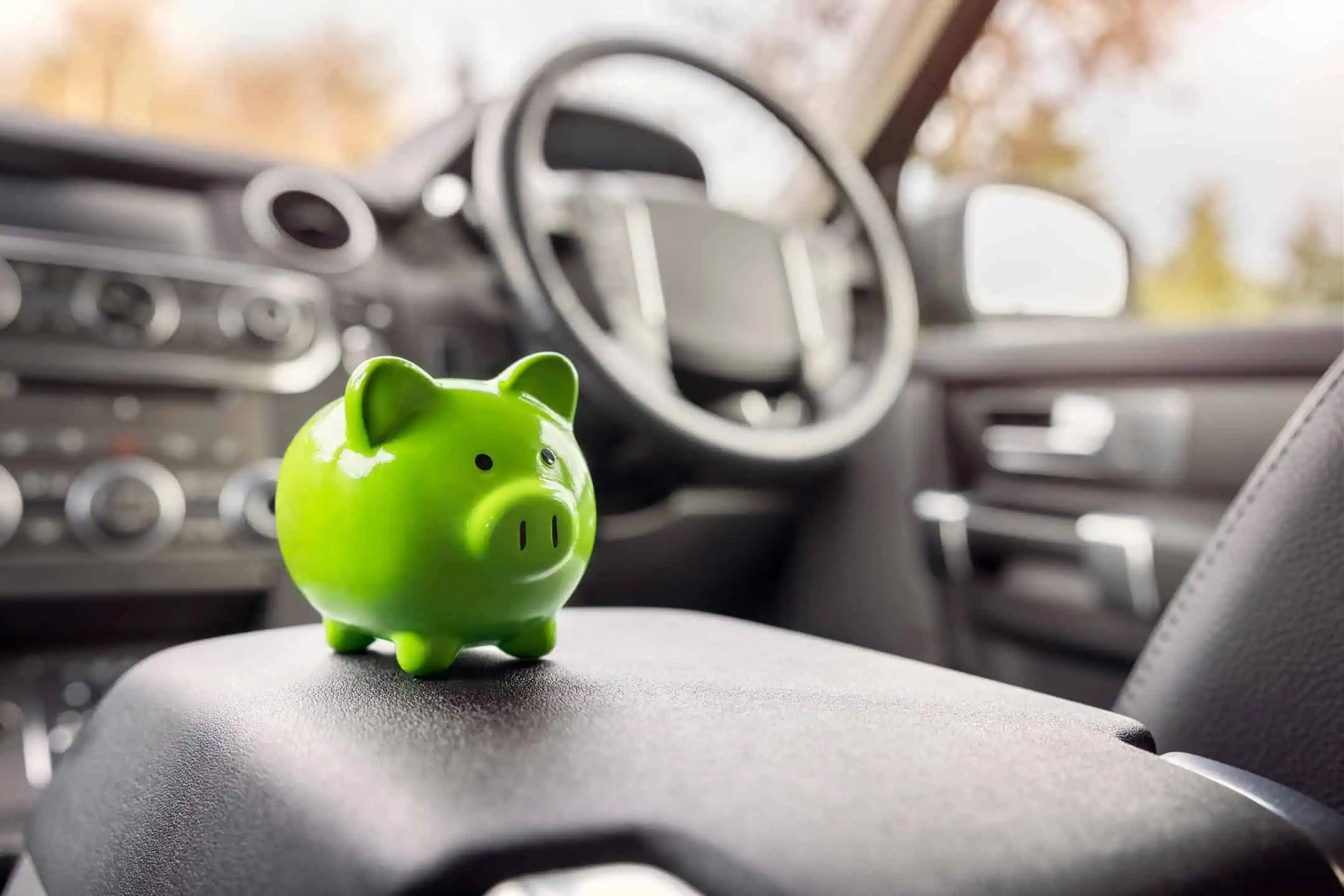Self-Employed Car Finance

Expert Verified
By: Geoff Tooze - CEO & FCA-Approved
How self-employed car finance works

Get a quote
Fill out a quick application to check if you’re eligible, with zero impact on your credit score.

Meet your account manager
A dedicated Account Manager will be in touch to guide you by call, text, or WhatsApp.

Choose a car
Browse 100,000+ used cars or buy from any trusted UK dealer, it’s up to you.

Hit the road!
Tell your Account Manager what you’re after, and if approved, you could be driving in just a few days.
*Rates start from 8.9% APR - Representative example 20.5% APR
Young Car Driver works with CarFinance 247 Limited, a credit broker (not a lender), to help you find the best car finance deal for your circumstances from their panel of trusted lenders. The exact APR you’re offered will depend on your personal situation and is subject to status and affordability checks.
Representative Example:
Borrow £6,500 over 5 years with a £0 deposit.
Representative APR: 20.5% (fixed).
Monthly payment: £167.88.
Option to purchase fee: £10.
Total cost of credit: £3,582.80.
Total amount repayable: £10,082.80.

What is Self-Employed Car Finance?
Being self-employed can be a good feeling – you can make your hours and have control with no annoying boss.
However, it can make life a little bit more complicated! You’ll often have taxes and payroll done when you work for a salary. But, when you’re self-employed, you must sort all of that yourself.
How easy is it to get car finance for self-employed drivers?
Well, you’re not alone. There are nearly 5 million people in self-employment in the UK, and most need a car!
This guide will cover everything you need to know about getting self-employed finance.
Can I get Car Finance when Self-Employed?
It wasn’t always easy finding car finance when self-employed. Previously, you had to provide much information about your income and how long you’ve been in self-employment. That can be hard when working for yourself, as it can be difficult to predict your monthly payment: it can often vary significantly.
However, you’ll be happy to know that things have improved. With so many finance providers now available, you’re bound to find more than a few happy to give you car finance – assuming you can afford it. You might also ask can I get car finance with bad credit history while self-employed? Indeed, the introduction of open banking improves your chances.


How does a Credit Provider view Self-Employed Workers?
Many car finance companies are nervous about lending to people in self-employment because they’re a more significant risk. You’re usually guaranteed a specific monthly income if you have a full-time employment contract. That means it’s straightforward for a lender to predict your overall income and assess whether you can afford a car.
Being self-employed and not having a set wage every month can be difficult for the credit provider to see if you make enough. While you might make £4000 one month, the next, you might make only £400 – it’s not always easy to tell.
Unfortunately for young drivers, getting car finance offers can be challenging if you’re under 21. A car loan for a young driver can be somewhat tricky anyway: add on the fact that you’re self-employed, and it can be challenging.
While credit providers remain cautious about providing self-employed car finance, it’s nothing like it used to be. That’s purely due to the number of people in self-employment! There’s been a massive growth in people working for themselves, so lenders have had to become more intelligent to reach a wider clientele.
Why is it more challenging to get a Car Finance offer when Self-Employed?
It wasn’t always easy finding car finance when self-employed. Previously, you had to provide much information about your income and how long you’ve been in self-employment. That can be hard when working for yourself, as it can be difficult to predict your monthly payment: it can often vary significantly.
Simply put, you need proof of income. When you’ve got a full-time employment contract, you can quickly provide evidence of your monthly payment. If you make enough and have been there for over a few months, you’re almost guaranteed to get accepted for a car finance credit agreement (assuming you have a decent credit score).
Proving “proof of income” is more complicated when working for yourself. The credit provider will want to have as much financial information about you as possible. They might ask for three months of bank statements to try and assess if your income is stable or turbulent.
One significant improvement is the introduction of open banking, allowing the finance company to access your banking information and quickly assess your affordability—also a great way to show proof of income.
When a lender reviews your car finance application, they want to see if you can stick to a repayment schedule. If your income is sporadic, or you can make the payments some months but not others, it will be hard to get accepted for self-employed car finance. While this is frustrating, it is ultimately in the lender and borrower’s best interest, as neither wants you to be in financial difficulty.
However, you’ll be happy to know that things have improved. With so many finance providers now available, you’re bound to find more than a few happy to give you car finance – assuming you can afford it. You might also ask can I get car finance with bad credit history while self-employed? Indeed, the introduction of open banking improves your chances.


Self-Employed Car Finance with a Bad Credit Score
The double-whammy – as if it wasn’t hard enough to get self-employed car finance!
In all seriousness, though, you’re not entirely out of luck. If you’ve had bad credit issues, you’ll find that lenders are more cautious.
However, some credit providers are happy to offer vehicle finance to self-employed people with bad credit scores. Even if you’ve had CCJs, defaults, and IVAs, there’s still likely to be a lender who can help you find a car.
The catch is that having a bad credit score means the interest rates will be quite a bit higher, meaning you’ll ultimately pay more for the car in the long run. But it’s an option if you need a reliable vehicle to get on with your life.
What types of Car Finance Loans are available to Self-Employed drivers?
All standard car finance offers, including PCP (Personal Contract Purchase) and HP (Hire Purchase), are available, even if you’re self-employed.
A PCP involves paying a monthly amount for the car and having the option to buy at the end of the contract term (called a balloon payment). You can either hand the vehicle back, pay the final payment to own it or take out another PCP.
A Hire Purchase is simpler: basically, you split the cost of the car over a certain amount of months and pay it back. Once you’ve made all the repayments, the car is yours!
But what’s your best option?
- HP car finance
- PCP car finance deals
- Personal Contract Hire (PCH) car finance
- Personal Loan car finance

HP car finance
HP is a pretty good option for self-employed workers planning on owning a car for the long term. While they pay more upfront, they’ll own the vehicle at the end of the period, meaning they can keep it for years or sell it. Of course, you can own it with a PCP too – but you’ll have to cough up a couple of grand for the final balloon payment.
The downside of an HP deal is the monthly repayments. It can be considerably more than a PCP deal. So ultimately, it depends on whether you want to swap your car out every 3 or 4 years or suck up the higher payments and own it soon.

PCP car finance deals
If you don’t plan on keeping a car for more than 4 or 5 years, a PCP might be a better deal.
When compared to an HP, you pay significantly less money a month. You’d have to make a balloon payment at the end of the contract if you wanted to buy the car outright. You can either hand the vehicle back or take out a new deal if you don’t. Many self-employed drivers happily do this and enjoy switching out their cars every three years.
The PCP is beneficial because you don’t have to make your mind up at the start. If you love the car and want to keep it at the end of your contract, you have the option to – assuming you can afford it. Ultimately, it’s a personal choice.
One thing to note about Personal Contract Purchase deals is that you’ll have a mileage limit. You’ll have to pay harsh penalty charges if you drive over this.
So if you log many miles a year, HP is probably a better option.

Personal Contract Hire (PCH) car finance
So we all know about PCPs and HPs…but what on earth is a PCH?!
A PCH is a Personal Contract Hire and is a lease deal, meaning you rent the car over the contract term (usually between 3 and 5 years).
A PCH is for self-employed drivers who don’t want to own a car. They want a decent and reliable vehicle for three years, and then they’ll take out a new deal.
Ultimately, PCH is the most convenient of the above finance options and offers the lowest monthly payments. However, you will never own the car, meaning you’re sinking money into driving it that you can never get back (by selling). But, It can be a stress-free way of getting a new car if you can afford it.
Like a PCP, you will have a mileage limit you must keep or face penalties.
ntage of your total available credit can indicate to lenders that you’re a responsible borrower. This is also why closing credit cards you don’t use – and reducing the amount of credit available to you – won’t necessarily improve your score.

Personal Loan car finance
Ahh, yes, the good old-fashioned way! A personal loan was the most common way of getting a car (aside from buying it upfront). You’d walk into a bank, give them some information, sign on the dotted lines and walk out with a loan to go and buy a car.
The personal loan is still a standard method of car finance and one that we rate highly. The main benefit of a personal loan is the simplicity and freedom you have. You can buy a car wherever you like when you receive the money. You can buy from the dealer of your choice. Ultimately, the bank doesn’t care – as long as you make your repayments!
The main thing to think about with personal loans is the interest rate. The rate offered can vary significantly based on your credit and financial history but can even change yearly.
With that in mind, it’s worth comparing your loan interest rate to a Hire Purchase deal. They both function similarly, so choose the lower interest rate!
How do I improve my chance of getting Car Finance when Self-Employed?
When self-employed, you must be well organised. You’ll need to be on top of your financial documents without a payroll department and accountant.
Before you apply for car finance, it’s worth strengthening your finance application the best you can. Read on to find out how to do this!
- Check your credit score
- Ensure you have proof of income and that your finances are in check
- Register on the electoral roll
- Provide lenders with up-to-date trading accounts
- Be prepared to show lenders your bank statements if you are new to self-employment
- Be honest with potential finance providers
- Put down a large deposit if you can
- Consider a guarantor loan

Check your credit score
Make sure you’re aware of your credit history and how good your credit score is. Nowadays, this is a breeze to do. We often recommend Equifax, Experian, or TransUnion. You can do this in less than 5 minutes.
It’s essential to check your credit score periodically, usually once a month. You want to check for inaccuracies, errors, or misunderstandings that could adversely affect your credit report and, ultimately, your chance to get car finance.
Checking your credit file will give you complete visibility on what you’re doing right and wrong. If something is negatively impacting your credit score, you should be able to see it on the credit report and alter your financial behaviour to improve it.

Ensure you have proof of income and that your finances are in check
Whether you’re self-employed or not, you have to be able to demonstrate an excellent financial history.
Before you apply for a car finance deal, it’s vital to get your finances in order. Make sure you have proof of income evidence that is trustworthy and reliable.
You’ll have three years of relatively consistent earnings and a steady income in an ideal world. If this is the case, you should have no problem getting self-employed car finance.
It might be harder to prove you’ve got a steady income if you’re newly self-employed. In that case, you’ll want to ensure your outgoings are as low as possible.
If you can, try to cancel any non-essential subscriptions or payments and settle old loans and debts. Also, close any joint bank accounts attached to people with a poor credit history.

Register on the electoral roll
It’s an old classic and probably the easiest to do on this list. Make sure you’re on the electoral roll!
The register is vital as lenders will often check you’re on it to confirm your address and facts as part of a credit score check. Also, being on the electoral roll gives your car finance application more credibility.

Provide lenders with up-to-date trading accounts
Naturally, the more years of information and trading account data you can provide, the better. A more extended history means more time to prove your eligibility and ability to meet repayments.
Three years of history used to be the gold standard, but as more and more people become self-employed, lenders have relaxed their stance. You can often find a self-employed car finance deal with 1 or 2 years of trading account history.

Be prepared to show lenders your bank statements if you are new to self-employment
If you’ve been self-employed for less than a year, your private bank account must be in good standing – as you’ll likely need to show these statements to a potential lender. It’s essential to ensure nothing could damage your application: try and avoid using any gambling services before applying for a vehicle finance deal.

Be honest with potential finance providers
Never exaggerate your income. Always be upfront and honest about your pay – or it’ll come back to bite you.
If a lender looks deeper into your details and finds out you’ve been fibbing, they’ll turn down your loan, damaging your credit rating.
If you think you have no chance of success, don’t apply to more than one lender. Take a few months to build up your credit rating before trying again

Put down a large deposit if you can
A larger deposit means less risk for the lender. If you can afford to put down something like a 20% deposit, your chances of getting accepted for a self-employed vehicle finance deal are much higher.
Even if you can’t afford a big deposit, 5-10% will improve your chances. Also, it’ll reduce your monthly repayments!

Consider a guarantor loan
Consider a guarantor loan if you’ve tried everything possible and can’t get a car finance deal.
Guarantor means having someone else agree to be your backup: so if you fail to make the repayments, this person will step in and cover for you. Of course, this requires a lot of trust between you both, and it’s most common for this person to be a close family member, like a parent.
While this might not be the most comfortable option, it’s still an option – and it might be the only one if you’re struggling to show proof of income or have a poor credit history.
